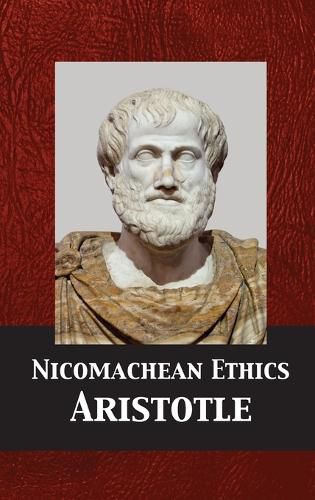Readings Newsletter
Become a Readings Member to make your shopping experience even easier.
Sign in or sign up for free!
You’re not far away from qualifying for FREE standard shipping within Australia
You’ve qualified for FREE standard shipping within Australia
The cart is loading…






This title is printed to order. This book may have been self-published. If so, we cannot guarantee the quality of the content. In the main most books will have gone through the editing process however some may not. We therefore suggest that you be aware of this before ordering this book. If in doubt check either the author or publisher’s details as we are unable to accept any returns unless they are faulty. Please contact us if you have any questions.
A student of Plato and a teacher of Alexander the Great, Aristotle is one of the towering figures in Western thought. A brilliant thinker with wide-ranging interests, he wrote important works in physics, biology, poetry, politics, morality, metaphysics, and ethics.
In the Nicomachean Ethics, which he is said to have dedicated to his son Nicomachus, Aristotle’s guiding question is what is the best thing for a human being? His answer is happiness. Happiness, he wrote, is the best, noblest, and most pleasant thing in the world. But he means not something we feel, not an emotion, but rather an especially good kind of life. Happiness is made up of activities in which we use the best human capacities, both ones that contribute to our flourishing as members of a community, and ones that allow us to engage in god-like contemplation. Contemporary ethical writings on the role and importance of the moral virtues such as courage and justice have drawn inspiration from this work, which also contains important discussions on responsibility, practical reasoning, and on the role of friendship in creating the best life.
This new edition combines David Ross’s classic translation, lightly revised by Lesley Brown, with a new and invaluable introduction and explanatory notes. A glossary of key terms and comprehensive index, as well as a fully updated bibliography, add further value to this exceptional new edition.
$9.00 standard shipping within Australia
FREE standard shipping within Australia for orders over $100.00
Express & International shipping calculated at checkout
This title is printed to order. This book may have been self-published. If so, we cannot guarantee the quality of the content. In the main most books will have gone through the editing process however some may not. We therefore suggest that you be aware of this before ordering this book. If in doubt check either the author or publisher’s details as we are unable to accept any returns unless they are faulty. Please contact us if you have any questions.
A student of Plato and a teacher of Alexander the Great, Aristotle is one of the towering figures in Western thought. A brilliant thinker with wide-ranging interests, he wrote important works in physics, biology, poetry, politics, morality, metaphysics, and ethics.
In the Nicomachean Ethics, which he is said to have dedicated to his son Nicomachus, Aristotle’s guiding question is what is the best thing for a human being? His answer is happiness. Happiness, he wrote, is the best, noblest, and most pleasant thing in the world. But he means not something we feel, not an emotion, but rather an especially good kind of life. Happiness is made up of activities in which we use the best human capacities, both ones that contribute to our flourishing as members of a community, and ones that allow us to engage in god-like contemplation. Contemporary ethical writings on the role and importance of the moral virtues such as courage and justice have drawn inspiration from this work, which also contains important discussions on responsibility, practical reasoning, and on the role of friendship in creating the best life.
This new edition combines David Ross’s classic translation, lightly revised by Lesley Brown, with a new and invaluable introduction and explanatory notes. A glossary of key terms and comprehensive index, as well as a fully updated bibliography, add further value to this exceptional new edition.